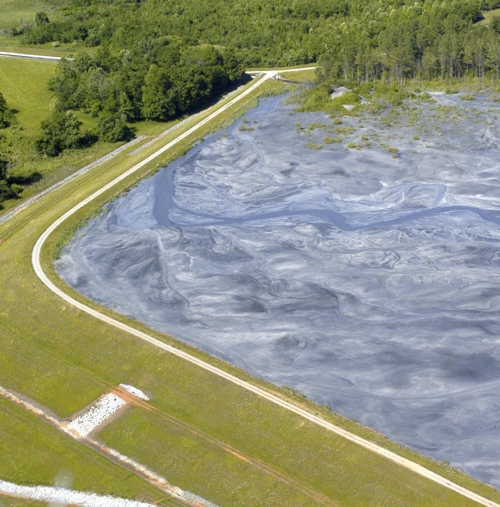Editorial: Trouble in Dukeville
Published 12:10 am Sunday, April 26, 2015

- A coal ash retainment pond several years ago at the Buck Steam plant along the banks of the Yadkin River just east of I-85 bridge in Rowan County as seen from the air. Photo by Jon C. Lakey, Salisbury Post.
Duke Energy is brewing distrust in Dukeville.
The power company’s attempts to quell concerns about its coal ash ponds were significantly undercut last week when the state warned 19 homeowners and a church in Dukeville not to drink or cook with their well water.
Thanks to the huge coal ash spill into the Dan River last year, a new state law required wells within 1,000 feet of Duke’s coal ash ponds to be tested. Many of those tests found contamination with toxic heavy metals, including very high levels of vanadium, a naturally occurring element found in oil and gas that may be carcinogenic to humans.
If further testing determines that the contamination is a direct result of the coal ash ponds, Duke would have to provide drinkable water to the affected homes. The company looked into having water lines run through Dukeville to the Buck Station several years ago, but that was related to the construction of gas turbines. So far Duke and the state say no link between the contamination and the coal ash ponds has been established. But the water test results do nothing to lessen residents’ fears or environmentalists’ suspicions.
Nor can residents take comfort in the fact that — as state and Duke officials point out — the well water that exceeded state groundwater standards would nonetheless meet federal Safe Drinking Water Act requirements for public water systems. That’s a red herring, as one environmentalist put it. Groundwater and municipal water have completely different standards. The tests conducted on the well water were looking specifically for substances that might leach out of an ash pond.
Duke’s Buck Steam Station has three unlined, open-air ash ponds. All told, Duke has 32 ash ponds at 14 power plants in the state. Eighty-seven private wells near eight of those plants had test results that raised red flags. Coincidence?
This reinforces the General Assembly’s vote to require that Duke Energy move or cap all of its ash dumps by 2029. But it raises the fear that lawmakers didn’t go far enough and aren’t requiring Duke to move quickly enough now. What kind of testing would confirm a direct link between the dumps and contaminated well water, and how much time could go by before Duke would accept the findings as definitive? The enormous expense of cleaning up the coal ash ponds has to be weighed against ongoing risks to public health and to Duke’s reputation, and the scales are beginning to tip.


